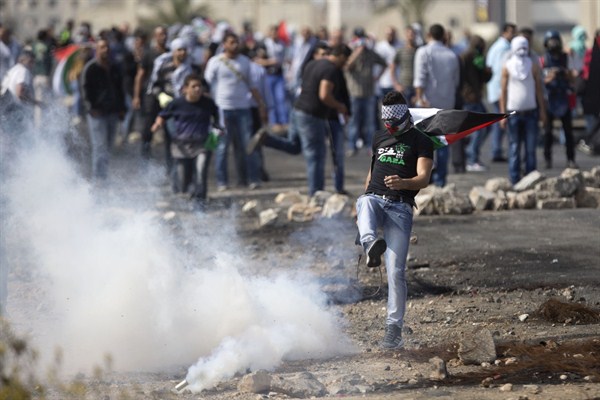The Israel-Palestine conflict, with all its recurring violence, often seems like the broken record of international affairs. Still this latest wave of lone-wolf Palestinian terrorist attacks followed by predictably harsh Israeli reprisals—and mutual recriminations from both sides that the other is responsible—should come as no surprise. With the collapse of peace talks, the re-election of a right-wing Israeli government opposed to a two-state solution, the continued corruption and dysfunction of the Palestinian leadership and the lack of any realistic path to end the Israeli occupation of the West Bank, the chickens have once again come home to roost in the Middle East.
As is usually the case, both Israelis and Palestinians must shoulder some of the blame for the attacks, which may or may not signal a third intifada. But the violence is a direct result of the policies of Prime Minister Benjamin Netanyahu’s government and its refusal to treat Palestinian President Mahmoud Abbas as a partner for peace.
That statement should not be taken as a defense of Abbas. His actions and statements over the past few weeks have been irresponsible and reckless. His dubious claims that Israel intends to change the status quo on the Temple Mount—also home to the Al-Aqsa mosque, Islam’s third-holiest site—and his near celebration of terror attacks by Palestinians, have dangerously raised tensions.

